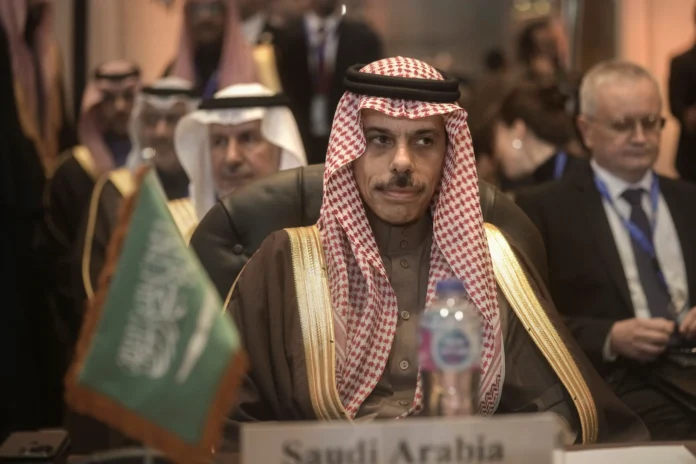Tensions rose sharply after Israel blocks Arab ministers from entering the occupied West Bank on Sunday. The move triggered condemnation from Saudi Arabia and other regional powers. The delegation had planned to support Palestinian statehood and push for a Gaza ceasefire.
Saudi Foreign Minister Prince Faisal bin Farhan Al Saud criticized Israel’s decision at a press conference in Amman. Standing with foreign ministers from Jordan, Egypt, and Bahrain, he accused Israel of rejecting peace efforts.
Prince Faisal said “Israel’s refusal confirms its extremism and unwillingness to engage in peace.” He added that the action strengthens Arab determination to apply international pressure.
The Arab delegation included top diplomats from Egypt, Jordan, Qatar, Saudi Arabia, and the UAE. Their goal was to meet Palestinian President Mahmoud Abbas in Ramallah. They hoped to show united Arab support for Palestinian rights during the ongoing war in Gaza.
However, Israel denied the group entry into the West Bank on Friday. Israeli officials called the planned meeting “provocative.” They claimed the Palestinian Authority supports statehood but refuses to condemn the October 7 Hamas attack.
By blocking access, Israel escalated tensions during an already volatile period. Arab leaders expressed outrage and reiterated their support for Palestinian sovereignty. They also emphasized that peace requires dialogue—not isolation.
The rejection comes as international pressure mounts over Israel’s conduct in Gaza. Humanitarian concerns continue to grow, while ceasefire efforts remain stalled. Meanwhile, illegal settlement expansion in the West Bank fuels global criticism.
Had the visit occurred, it would have marked a significant milestone. Prince Faisal’s presence would have been the first by a senior Saudi official in the West Bank in decades.
As Israel blocks Arab ministers, Arab nations plan to increase their diplomatic efforts. They aim to bring the issue before the United Nations and other international forums.
This latest incident further strains Israel’s regional ties. It also highlights the urgent need for renewed diplomacy. With tensions rising, Arab leaders warn that ignoring peace will deepen the crisis.
The fact that Israel blocks Arab ministers may become a defining moment in future peace talks across the region.


